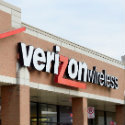Verizon's DSS comes up short in new 5G tests
Signals Research Group used high-end testing equipment to check out Verizon's new Dynamic Spectrum Sharing (DSS) technology. 'We can't help but be disappointed,' the firm concluded.

Verizon is using a brand new wireless technology called Dynamic Spectrum Sharing (DSS) to extend its 5G signal nationwide. But according to one new set of tests, the technology essentially reduces the effectiveness of both 4G and 5G.
"Although DSS is a cool technology that negates the need for unused spectrum, DSS results in much lower spectral efficiency than LTE or 5G NR [New Radio] by itself," wrote Mike Thelander, president of analysis and consulting firm Signals Research Group (SRG), which conducted the tests. "This inefficiency hurts 5G NR and LTE performance."
Verizon launched DSS in conjunction with the unveiling of Apple's newest 5G-capable iPhone. The move allowed Verizon to respond to the nationwide 5G services from AT&T and T-Mobile with a similar offering of its own.
All three operators are using their low-band spectrum holdings for their nationwide 5G services, and due to the propagation characteristics of 5G in low-band spectrum, none of the offerings are much faster than 4G. However, both AT&T and T-Mobile are dedicating a slice of their low-band spectrum holdings to 5G, whereas Verizon is using DSS to essentially share its spectrum between 4G and 5G.
"It's working well," Verizon CTO Kyle Malady said of DSS during an appearance at an investor event this week. "DSS is a tool in our tool chest."
"It's a great way to transition people to the new technology," he added.
But T-Mobile has loudly criticized Verizon's use of DSS as an inefficient path toward 5G.
"It allows both 4G and 5G to share the same spectrum and splits the capacity so each technology gets part of it, which can make things slower for everyone," argued T-Mobile's networking chief Neville Ray in a post to the company's website last month. "Without adding new spectrum, Verizon's nationwide 5G is going to perform very similar to LTE."
T-Mobile has even developed an advertisement based on the issue:
SRG said it conducted detailed DSS tests on Verizon's network in Minneapolis and Oklahoma City in late October using wireless network testing equipment from vendors Accuver Americas, Rohde & Schwarz and Spirent Communications.
"Although we are fans of DSS due to the flexibility it provides operators when migrating their network from LTE to 5G NR, we can't help but be disappointed by the subsequent performance it currently delivers," the firm wrote of its initial findings. "The performance issues we observed in our testing will need to be resolved."
DSS essentially allows operators to transmit both 4G and 5G communications in the same spectrum band in 1 millisecond increments. But the SRG analysts wrote that DSS suffers from interference problems created by 4G communications in nearby spectrum bands.
The SRG analysts noted that Verizon is using two different versions of DSS technology. In Minneapolis with Ericsson equipment the operator is running DSS through a technology called Cell Reference Signal (CRS), while in Oklahoma City with Nokia equipment the operator is running DSS through a technology called Multicast Broadcast Single Frequency Network (MBSFN). The analysts said they found both versions to suffer from interference and other technical problems, but that they expect most operators to eventually embrace the CRS version of DSS.
"T-Mobile has been very vocal about the challenges of DSS and the results of our study largely support their view," the analysts wrote. The analysts also believe Verizon and AT&T – which is also using DSS in some areas of its network – are working with their vendors to improve DSS, and that the technology should be viewed as a stepping stone to full-blown 5G and not a permanent state of the technology.
Related posts:
— Mike Dano, Editorial Director, 5G & Mobile Strategies, Light Reading | @mikeddano
About the Author(s)
You May Also Like




.jpg?width=300&auto=webp&quality=80&disable=upscale)







